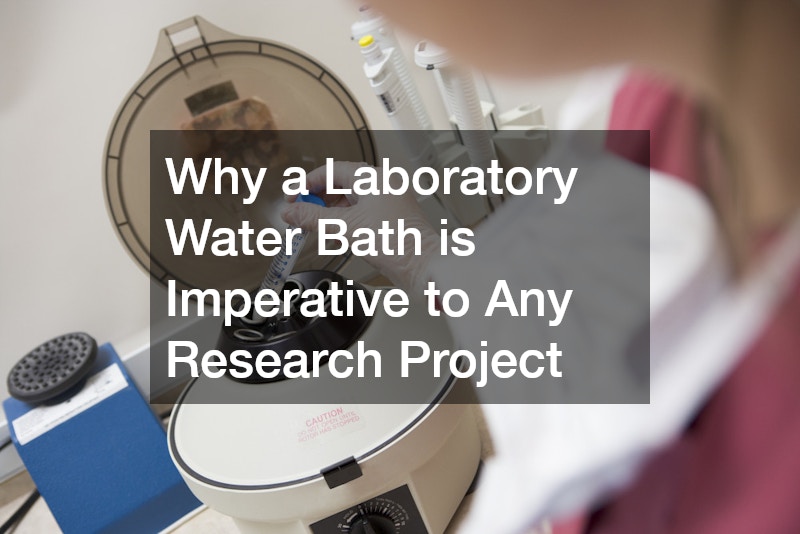A laboratory water bath is an essential tool in scientific research, employed across various fields for their precision and reliability. This article explores why they are crucial to any research project, highlighting their versatility and importance in maintaining experimental accuracy. Whether used for temperature control, sample preparation, or reagent warming, water baths are fundamental in ensuring data integrity and experimental success.
What are the primary applications of a laboratory water bath?
Temperature Control in Experiments
Laboratory water baths are widely used for processes requiring stable temperatures, such as cell culture incubation and melting agar for media preparation. The ability to maintain specific temperature ranges is vital for reproducible results, as even slight temperature deviations can alter experimental outcomes. By using a laboratory water bath, researchers can ensure that their experimental conditions remain constant, thus enabling more reliable results.
In fields such as microbiology and chemistry, precise temperature control is essential to the success of many experiments. A water bath provides uniform heating, which is particularly important for delicate processes that require gradual temperature changes to prevent damage to samples. This precision is especially crucial when conducting reactions that are sensitive to thermal fluctuations, ensuring that the reaction proceeds at the correct rate and temperature.
Furthermore, the versatility of water baths allows for their use in a wide variety of applications, enhancing the laboratory’s capacity to conduct diverse experiments. For example, in physiological and biochemical research, maintaining an optimal temperature is critical to studying the temperature-dependent behavior of molecules and organisms. Having a reliable method of temperature management aids researchers in performing experiments that require exact temperature conditions, improving overall study outcomes.
Sample Preparation and Degassing Solvents
A laboratory water bath plays a crucial role in the preparation of biological and chemical samples. Uniform heating provided by a water bath is essential for processes like protein denaturation or enzyme reaction stabilization, where consistency in temperature directly impacts the effectiveness and efficiency of the procedure. By ensuring uniform heating, researchers can prevent uneven sample treatment that might arise from using less precise methods.
Additionally, water baths are used in degassing solvents, a process integral to preparing samples for analysis by eliminating dissolved gases that could interfere with the experiment. This is particularly important in areas such as HPLC (High-Performance Liquid Chromatography), where gases in the solvent could lead to incorrect readings or peak distortions. By employing a water bath for degassing, researchers can enhance the purity and reliability of their experimental samples.
Sample preparation often involves many intricate steps where precision is key; water baths provide the controlled environment necessary for treatments requiring careful heating over time. In experimental settings where the quality of outcomes depends significantly on sample integrity, utilizing a laboratory water bath ensures samples are consistently and accurately prepared, yielding dependable data. This makes the water bath a critical tool in the toolkit of effective research laboratory practices.
Thawing or Warming Reagents
In laboratory settings, reagents often need to be thawed or maintained at a usable temperature to ensure their effectiveness in experiments. Laboratory water baths are commonly used to thaw reagents from frozen storage, providing a gentle and controlled warming method that preserves the reagent’s efficacy and avoids overheating. By maintaining these critical solutions at a functional temperature, researchers can prevent experimental procedures from being compromised by temperature fluctuations.
The manner in which reagents are warmed can significantly impact their stability and functionality. Water baths allow for controlled warming conditions, minimizing risks associated with rapid temperature changes that could degrade the materials. In temperature-sensitive assays, maintaining reagents at exact temperatures is crucial, impacting the viability of many experimental studies.
Moreover, a laboratory water bath ensures that reagents remain at the desired temperature throughout the duration of the experiment. This ongoing control is vital for experiments requiring extended durations, supporting the continual reliability of the reagents used. Providing a stable environment for reagent warming exemplifies the pivotal role water baths play in supporting experimental accuracy and consistency across various scientific research projects.
How does a laboratory water bath enhance the reliability of research data?

Consistency in Experimental Conditions
By providing a constant and controlled environment, laboratory water baths reduce variability in experiments, leading to more reliable and replicable data. Consistency is a cornerstone of scientific research, as it allows for comparisons across different studies and trials. A laboratory water bath, with its ability to maintain steady temperatures, is a vital instrument in achieving this level of consistency.
Experimental variability can lead to inconclusive or skewed results, undermining the integrity of research findings. A water bath minimizes these risks by ensuring that temperature-related variables are kept consistent throughout the experiment. This consistency supports the collection of accurate and unbiased data, ultimately contributing to the validity of scientific conclusions.
Moreover, the reliability offered by water baths extends to multi-step experiments requiring exact temperatures at various stages. By using a water bath, researchers can ensure that each step is performed under optimal conditions, achieving a continuity that bolsters the reliability of research outcomes. This ability to maintain continuity across experimental conditions highlights the indispensability of laboratory water baths in research settings.
Reduction of Contamination Risks
The closed system of a water bath minimizes contamination from external sources, supporting the integrity of sensitive samples and reagents used in research projects. In laboratory settings, where contamination can jeopardize the entire experiment, the water bath acts as a protective measure. By enclosing samples within a controlled environment, it reduces the exposure to airborne contaminants or inadvertent handling errors that could compromise results.
Maintaining sanitary and contamination-free experimental environments is crucial, particularly in biological research, where samples are often highly susceptible to contamination. The protection afforded by a water bath is, therefore, a critical component of laboratory procedures, ensuring that sensitive samples remain unaltered throughout the experiment. This shielding from potential contaminants enhances both the accuracy and credibility of research data.
In addition to minimizing contamination risks, the water bath’s design often incorporates features to prevent bacterial growth, further ensuring the purity of the working environment. Researchers can rely on these features to uphold a contamination-free lab setting, thus improving the quality and consistency of the data collected. This capacity to safeguard against contamination, along with precise temperature control, underscores the invaluable role of laboratory water baths in enhancing research reliability.
Facilitation of Accurate Temperature Calibration
Water baths allow for precise temperature calibration, which is crucial for experiments that require tight temperature control to ensure the validity and reliability of experimental results. Accurate calibration is integral to many fields of research, from chemical reactions to biological assays, where even slight deviations in temperature can significantly impact results. A laboratory water bath provides the accuracy necessary for fine-tuning temperature conditions, ensuring they align with the experimental requirements.
Temperature calibration using a water bath eliminates the inconsistencies often introduced by manual heating methods, where temperature fluctuations might occur. This ensures experiments are conducted at their prescribed temperatures, reducing the likelihood of errors or anomalous data. By offering reliable calibration capabilities, water baths support experimental protocols that demand stringent temperature oversight.
Moreover, the ability to calibrate temperatures accurately makes water baths indispensable for standardizing procedures across different studies and laboratories. Researchers can replicate experiments with greater confidence that the conditions will remain consistent, leading to more credible and comparable results. This function of ensuring precise and uniform calibration cements the water bath as a foundational tool in enhancing experimental reliability and data integrity.
The laboratory water bath is an indispensable tool in research, crucial for ensuring both efficiency and accuracy across a wide range of experimental processes. Its application in maintaining stable temperatures and enhancing data reliability makes it an imperative piece of equipment for any research project. As a cornerstone of laboratory apparatus, the water bath supports the integrity, consistency, and success of scientific endeavors.

